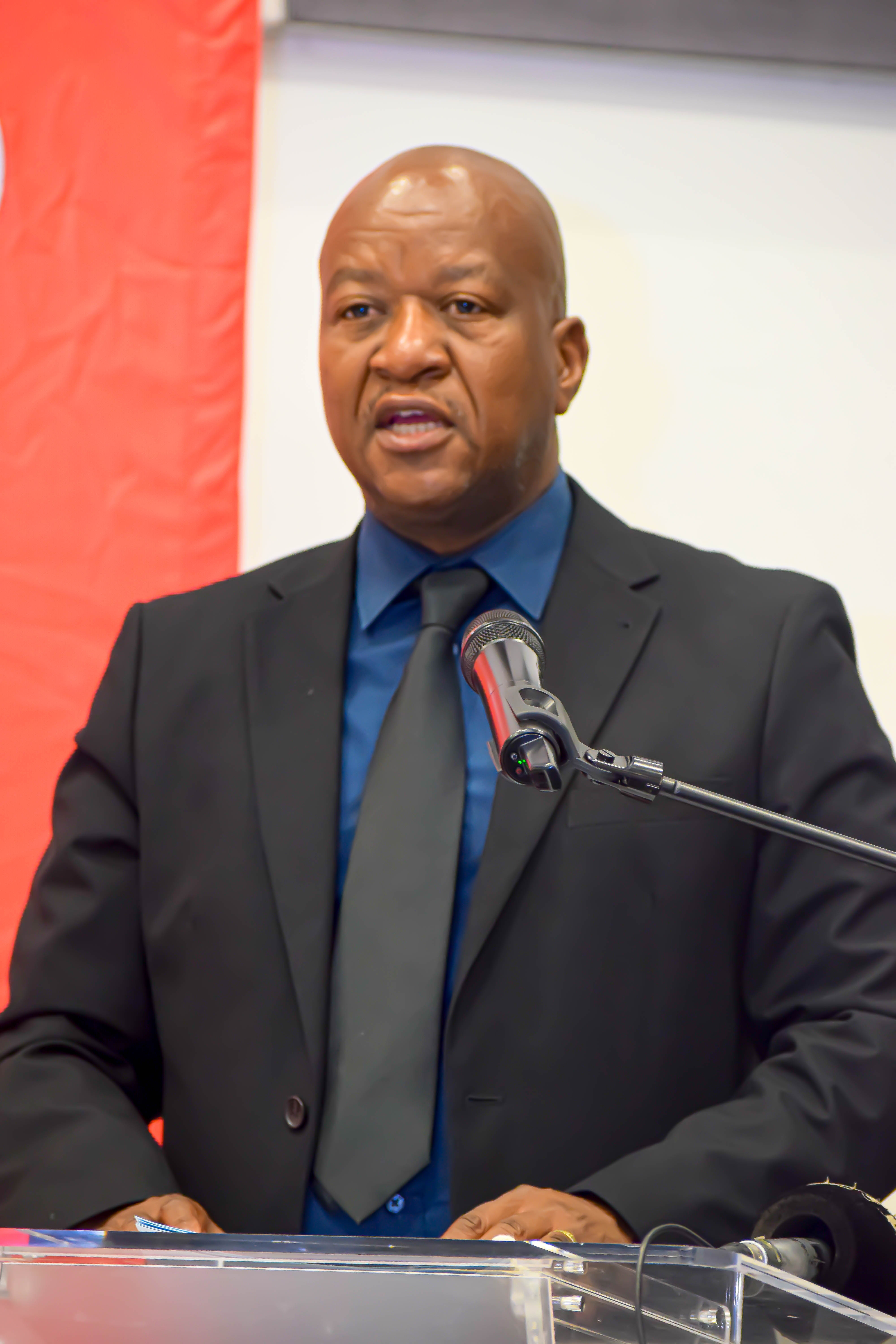Keep Up To Date {On Social Services, Disaster Management & Humanitarian Services.}
BRCS hosts disaster risk management symposium
 28 March, Gaborone: “In an endeavor to contribute and seek solutions to growing natural disasters, the Botswana Red Cross Society saw it fit to partner with the Netherlands Red Cross Society and the International Federation of Red Cross and Red Crescent to host the Disaster Risk Management symposium.”
28 March, Gaborone: “In an endeavor to contribute and seek solutions to growing natural disasters, the Botswana Red Cross Society saw it fit to partner with the Netherlands Red Cross Society and the International Federation of Red Cross and Red Crescent to host the Disaster Risk Management symposium.”
This was said by Botswana Red Cross Society Secretary General Mr Kutlwano Mukokomani at the Disaster Risk Management symposium that was hosted by the Society recently.
When reiterating on the objectives of the symposium under the theme, “Promoting Innovation, Integration, Collaboration in Local, National and Regional Disaster Risk Management” Mr Mukokomani said the symposium seek to explore innovative approaches, harness cutting-edge technologies and develop and implement advanced methodologies and approaches to address evolving challenges in disaster risk management.
“We hope that the knowledge gained from the symposium might also help in guiding future policy reforms by emphasizing the importance of mainstreaming disaster risk reduction considerations into development planning, policy-making, and decision-making processes across sectors.” He said.
Furthermore, he expressed gratitude to the Netherlands Red Cross Society for their invaluable support and partnership.
He said the Netherlands Red Cross Society has a long-standing relationship with the Botswana Red Cross Society in strengthening disaster risk management and fostering innovative solutions, which is a crucial of international cooperation in tackling global challenges.
He also extended sincere gratitude to the International Federation of the Red Cross and Red Crescent Societies (IFRC) for being instrumental in ensuring the success of the symposium by providing technical expertise and playing a coordination role in facilitating collaboration among various stakeholders.
“I also thank the NDMO for their continuous partnership, support, collegiality and guidance in all issues pertaining to disaster management in Botswana.” He said.
When giving a keynote address Acting Permanent Secretary in the Ministry for State President Mr Moagi Baleseng said the government recognizes climate change and global warming effects on the occurrence of natural disasters and is committed to disaster risk reduction and building resilience at national and regional levels.
Recalling His Excellency the President Dr Mokgweetsi Masisi championing of the Reset and Reclaim Agenda call, Mr Baleseng said this gives an opportunity to introspect and reflect on strategies to better the lives of Batswana, further adding that with very ambitious programmes like Temo Letlotlo which is geared towards improving quality of life, disasters, if left unchecked can disrupt the production cycles and livelihoods.
“Climate change is amplifying the occurrence of natural disasters including floods, wildfire and drought. These events are becoming more frequent and severe, posing greater risks to human populations and ecosystems. Rising global temperatures also contribute to environmental degradation. These environmental changes lead to habitat loss, threatening vulnerable species and ecosystems.” He said.
Mr Baleseng said it was essential to reflect on the expected outcomes of the symposium namely, enhanced capacity, strengthened partnerships, innovative solutions, and policy recommendations.
In closing the symposium, the BRCS President Mr Odirile Itumeleng highlighted that throughout the symposium, critical topics such as Nature Based Solutions in Climate Change, the significance of community engagement in disaster risk reduction, and the importance of domesticating UN Frameworks such as the Sendai Framework For Disaster Risk Reduction were delved into.
Mr Itumeleng further said the symposium had underscored the pivotal role of legislation in facilitating efficient disaster response and fostering collaboration across sectors.
“By harnessing the power of policy frameworks and legal mechanisms, we can enhance our collective ability to mitigate risks and protect our communities from the impact of disasters.” He said.
He urged participants to carry forward the insights and lessons learned from this symposium with renewed determination and commitment to building resilient communities and safeguarding the well-being of our people adding that challenges ahead can be overcome together and a safer and more sustainable future for all can be created.ENDS

